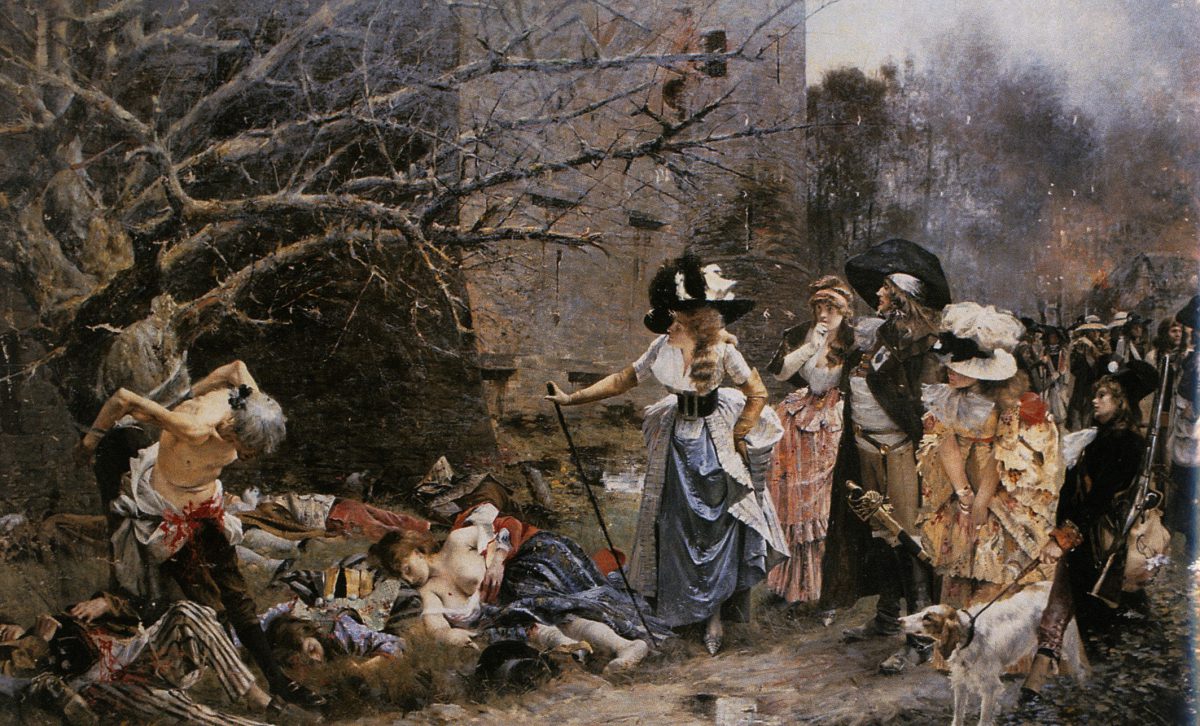skip to main |
skip to sidebar
 |
| Massacre de Machecoul |
From
Quillette:
The Vendée is a region in the west of France whose residents became renowned for their piety after Protestants were driven out of the area in the wake of King Louis XIV’s Edict of Fontainebleau (1685). Throughout the 18th century, the Vendée was, culturally, politically and economically, a backwater. The closest major city, Nantes, remains noted for its role in the slave trade.
Vendéens seem to have welcomed the French Revolution, at least initially. Everybody was annoyed with high levels of taxation. Even the pious were fed up with what they had to pay to the Church. The problem was not so much with the clergy as with parish assemblies (fabriques), which controlled parish finances. Vendéens had little quarrel with the local nobility, who as a rule stayed in the region and knew the peasantry well. Few of them spent any time in Paris, Versailles or even Nantes. The nobles too resented centralized administration.
On November 2 1789, the newly-created National Constituent Assembly (NCA) in Paris (formerly the National Assembly) declared that all revenue-generating Church property in France was to be nationalized. On April 19 1790 Revolutionary legislators decided to help themselves to the rest of the Church’s property. It would be sold; the wealth would be redistributed by the Revolutionary government. On July 12 the NCA passed a law, the Civil Constitution of the Clergy, that completely subordinated the Catholic Church to the Revolutionary government, and forbade Catholic allegiance to any foreign authority (for example, the Vatican, or the Pope).
There would be no more recognizing the authority of bishops who had been appointed by non-French powers. Clergy were also ordered to swear allegiance to the Revolutionaries. They were now to be made civil servants, completely subject to the new French state. Most priests and bishops not only condemned the new Civil Constitution of the Clergy, but refused to swear the oath that would subject them to civil officials. Revolutionary authorities were concerned that people were still loyal to the clergy rather than them. In October the Directory of the Lower Loire was compelled to remind the clergy that they were being stubborn and had to do as they were told. But most priests remained disobedient.
On November 10 1790, 103 priests from the diocese of Nantes signed a sharply-worded letter of protest to the NCA condemning their authoritarianism. Legislators were shocked and angry at the ingratitude. A few months later the Bishop of Nantes ordered his clergy to reject the Civil Constitution. Nine out of ten did not need to be told. The Revolutionary authorities had no choice but to appoint new bishops from among those few priests who had sworn to subject themselves to the NCA.
On June 26 1791, the NCA declared its right to deport or exile “refractory” clergy who had refused to swear the oath. Only obedient “constitutional” clergy who had pledged their allegiance to the NCA were allowed to carry out any duties. Soon there was a shortage of priests; most parishes now had nobody legally to carry out baptisms, weddings, or funerals. Churches were locked up by authorities. Yet citizens continued to show up to church on Sundays, even when the doors were sealed and the priest was imprisoned or in hiding. Force was necessary to maintain the NCA’s new regulations on religion.
The people refused to show up to Masses celebrated by “constitutional” priests. Indeed the “constitutional” clergy were widely ridiculed as cowards, traitors and infidels. Frequently they were subjected to physical assault. But they were public officials now, and could be protected by the armed forces if necessary, particularly when the faithful showered them with dirt, manure and rocks, or kicked them and spat in their faces.
On September 20 1792, the National Convention (NC) replaced the NLA, which had supplanted the NCA, which had been formed in July 1789 from the original National Assembly (established in June 1789). The Revolutionaries’ position on the clergy remained consistent. They did not want good priests, or intelligent priests, or well-educated priests, or priests who knew their parishes and the needs of their parishioners: they wanted priests who would obey them, follow orders and not talk back. The clergy stood in the way of their plans to conscript three hundred thousand men for the Revolutionary army.
On March 6 1793, all Catholic churches not served by “constitutional” clergy were permanently closed. On March 7, a recruitment law went into effect. Revolutionary leaders, legislators, municipal authorities, administrators and government functionaries in general were of course exempt from military service.
In the Vendée, the NC’s call for conscription was not received with universal enthusiasm. When the District Commissioner at Thouaré tried to announce the official decree to the people, he was met with forty peasants armed with sticks who chanted “holy freedom, sacred freedom.” One of them shouted:
You have killed our king, you have chased away our priests, and you have sold off the property of our Church. Where is the money? You have spent it all. Now you want our bodies? No! You will not have them!
(Read more.)
Share


















No comments:
Post a Comment